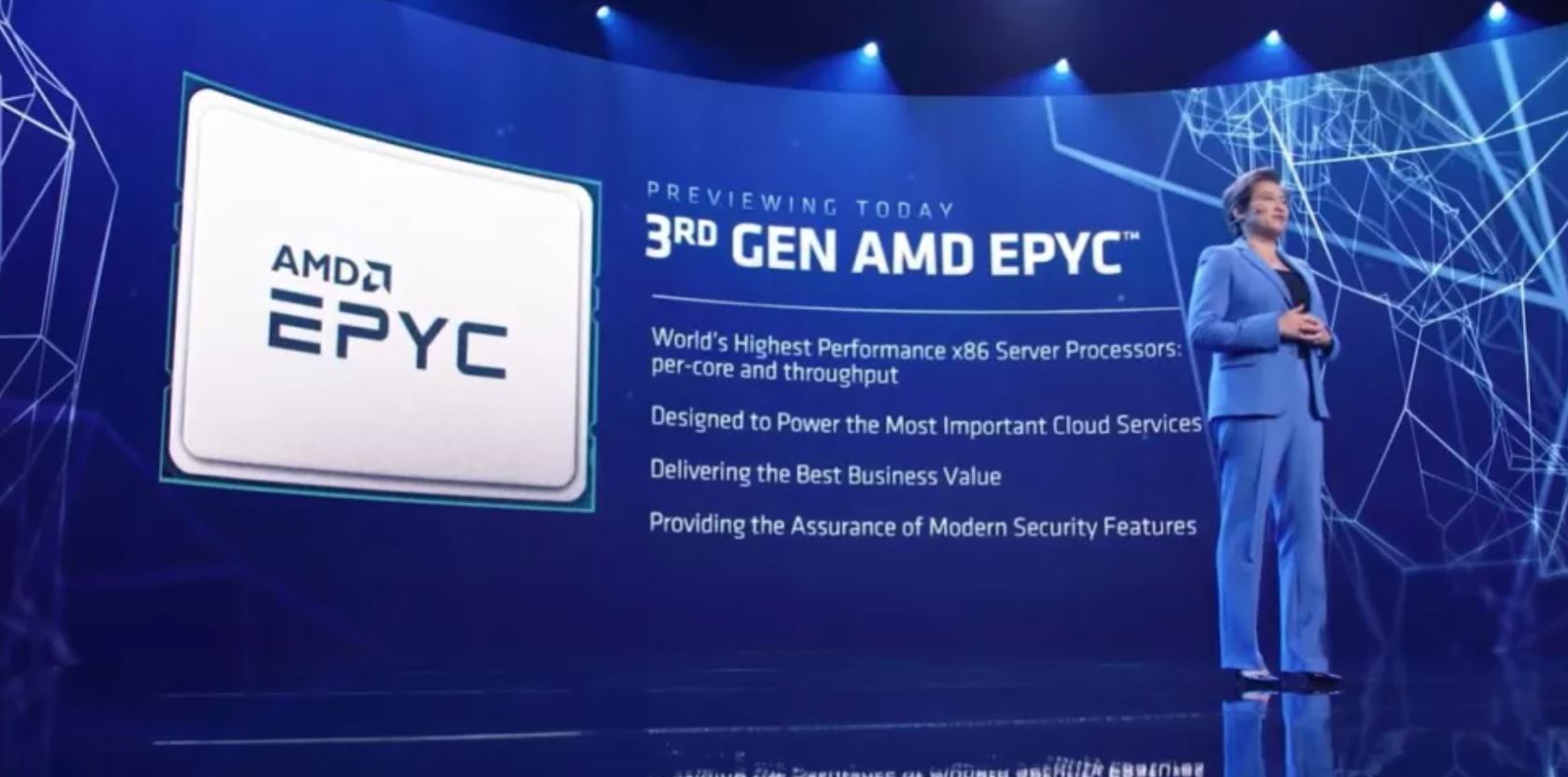Early indications suggest that, as with the current-gen EPYC Rome processors, AMD fabs the EPYC Milan chips with the 7nm process and they top out at 64 cores. The most significant change to the series appears to come with the infusion of the Zen 3 microarchitecture that lends a 19% in instruction per cycle (IPC) throughput improvement through several changes, like a unified L3 cache and better thermal management that allows the chip to extract more performance within any given TDP range.
AMD has obviously prioritized the production of its EPYC chips to continue its assault on Intel’s vaunted Xeon platform. As a result, AMD has continued to slowly whittle away at Intel’s commanding lead in the data center, a trend that still continues today despite supply constraints that have slowed the company’s advance in other segments.
Faced with unrelenting pressure from a surprisingly nimble competitor, Intel has significantly reduced gen-on-gen pricing with the debut of its Cascade Lake Refresh Xeon models, by 60% in some cases, by slightly adjusting the capabilities of the chips in a way that largely results in a price reduction that comes in the guise of new chips. To counter, AMD bulked up its EPYC Rome lineup with its workload-optimized 7F and 7H parts, which come with higher power consumption and thermals than the standard 7002 series chips but feature higher frequencies, allowing AMD to challenge Intel’s traditional lead in per-core performance.
The Milan launch, not to mention Intel’s pending 10nm Ice Lake launch, promises to reignite the heated data center competition once again. AMD has reiterated that EPYC Milan processors are on track for the formal launch in the first quarter of the year, and today’s announcement indicates those plans are on track. It’s noteworthy that the EPYC Milan chips already began shipping to select cloud and HPC customers in the last quarter of 2020, while the formal launch will mark availability for Tier 1 OEMs.
